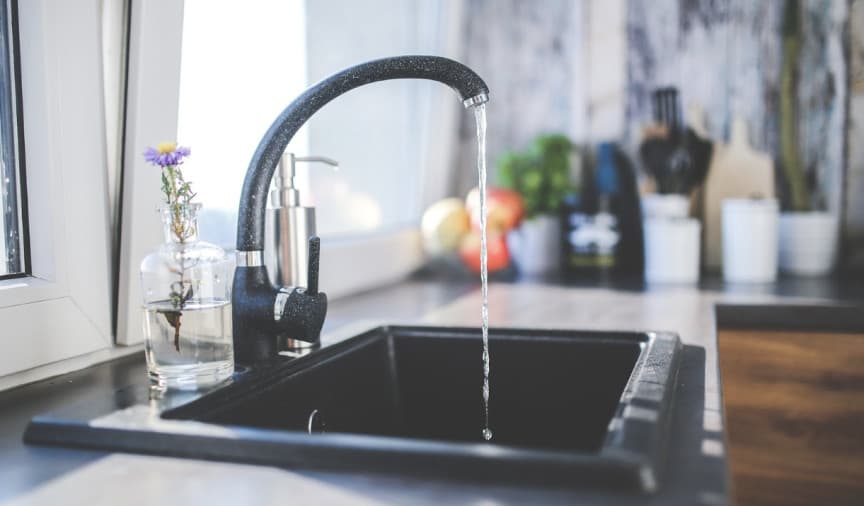Approaches for Dealing with a Blocked Drain Prior to Engaging Expert Plumbers
Try HereWe have stumbled on this great article on What I learned from trying to deal with a clogged drain below on the internet and concluded it made sense to talk about it with you on this site.

Intro
Managing a blocked drainpipe can be a frustrating experience, interfering with day-to-day activities and potentially triggering damage to your residential property. However, prior to reaching out to plumbing experts, there are steps you can require to attend to the issue yourself. In this overview, we'll explore do it yourself solutions and preventive measures to tackle a blocked drainpipe effectively.
Determining the Concern
The primary step in attending to an obstructed drainpipe is identifying the indications. Slow drain, gurgling noises, foul odors emanating from drains, or water backing up are common indications of a blocked drain. Determining these indications early can help prevent even more complications.
Picking the Right Pipes Service
When choosing a pipes service, consider elements such as experience, licensing, and client testimonials. Select a respectable plumbing with a record of top quality craftsmanship and clear pricing practices.
Price Considerations
The cost of professional drainpipe cleaning services can differ relying on the extent of the obstruction and the plumber's rates. Demand quotes from multiple suppliers and inquire about any service charges to guarantee transparency and prevent shocks.
Security Measures
When attempting do it yourself drainpipe cleansing, prioritize safety and security. Wear protective gloves and glasses to prevent contact with harmful chemicals or germs. Never ever blend various drainpipe cleansing products, as this can produce dangerous fumes.
Instance Researches
Real-life examples highlight the efficiency of do it yourself remedies and the relevance of timely specialist intervention in dealing with drain obstructions.
Typical Causes of Obstructed Drains
Understanding the factors that add to drain clogs is necessary for reliable resolution. Usual wrongdoers consist of hair, soap scum, oil, food debris, and international objects like hygienic products or paper towels. Tree origins attacking underground pipes can also create considerable obstructions.
Do it yourself Solutions
For minor blockages, a number of DIY services can be efficient. Pouring boiling thin down the drain can assist dissolve grease and debris. Baking soda and vinegar or a mix of salt and baking soda can work as natural cleaners. Making use of a bettor or pipes snake to remove obstructions is one more choice.
Tools and Equipment
Having the right devices handy can make DIY drainpipe cleansing a lot more effective. A bettor is a flexible tool for getting rid of obstructions in sinks, commodes, and showers. A plumbing serpent or auger can get to deeper clogs, while drain cleansing chemicals can be utilized meticulously for persistent blockages.
Safety nets
To stay clear of future obstructions, adopting preventive measures is vital. Install drainpipe guards or strainers to catch hair and debris prior to they go into the pipelines. Regularly flush drains pipes with hot water to dissolve grease accumulation, and prevent getting rid of oil or strong waste down the tubes.
When to Call a Professional
While do it yourself remedies can resolve minor clogs, specific signs show the requirement for professional assistance. Consistent blockages, foul odors in spite of cleaning up efforts, or numerous drains pipes backing up all at once are red flags that warrant skilled intervention.
Conclusion
By complying with the suggestions detailed in this overview, you can successfully tackle obstructed drains pipes and stop future pipes issues. Whether selecting do it yourself solutions or seeking specialist assistance, prompt activity is essential to preserving a healthy and balanced plumbing system and maintaining the integrity of your home.
How to Clear a Clogged Drain Yourself (And When to Call In the Professionals)
What Can Clog a Drain
Dirt Skin flakes Hair Grease Soap scum Food Offset pipes Tree roots Small objects Mineral buildup DIY Tricks to Unclog a Drain
You can fix this! Once you have identified the source of the clog (or have a vague idea), you can try one or a combination of these fixes in order to clear your plumbing.
Wire Hanger or Snake
Untangle and clear out hair from a drainpipe with a homemade snake. Use a straightened-out wire hanger with a 90-degree angle hook to locate the clog and drag out any unwanted material.
Remember not to push the clog further down to where the wire hanger cannot reach! If you need to follow up with a plunger, give it a try. Your efforts might be more successful after it’s been wire-snaked.
If you want to get fancy and don’t have a wire hanger to spare, head to the store and pick up a hand-operated drain snake. You can get one for $10-$30. It may save you the hassle, and provide additional length to reach deep into the clogged pipe.
Plunger
A cup plunger has a suction cup attached to a wooden handle. The rubber creates a seal around the drain, and increases the pressure force of the plunger.
Plunge for 30-second increments to loosen the clog. This may need to be repeated over the course of 15-20 minutes. Once plunged, run the water to flush the remaining material out of the drain.
Remember– never use a plunger if you have used a chemical drain cleaner. These chemicals can splash up from the force of the plunger and cause serious injury or burns.
Boiling Water
Hot water can sometimes break up materials into a flushable amount. Dirt, grease, and soap buildup requires heat in order to unstick from surfaces.
Take your kitchen kettle and heat your water to a boil. Once it reaches a rolling boil, pour it directly down the drain into the blockage. Carefully follow with plunging, if necessary.
Don’t worry if this takes more than one try! It can often take multiple kettles and repeated plunging in order to clear a particularly stubborn clog.
Chemical Drain Cleaner
As a last resort, pick up a bottle of chemical drain cleaner. Drain-cleaning chemicals are potent, and not very good for the environment.
You may need to wear protective eyewear in gloves before handling your bottle of chemical drain cleaner. Follow the instructions printed on the bottle, and flush with water as soon as the instructions allow. Do not follow with plunging.
Baking Soda and Vinegar
As a safer alternative to chemical drain cleaner, baking soda and vinegar can create a chemical reaction that clears tough clogs.
Combine one cup of cleaning vinegar with one cup of boiling water, and set aside. Once you have done this, pour half a cup of baking soda down the drain. Give the baking thirty seconds to settle and cover a large portion of the problem drain.
Following the baking soda, pour down your vinegar and hot water solution. Once the vinegar and baking soda combine, the mixture will bubble and fix. Let this reaction fizzle in the drain for about an hour.
After an hour, follow with a kettle’s worth of hot water. The heat and liquid should flush out any remaining material.
When to Call a Plumber
If your DIY attempts haven’t cleared your clog drain, it’s time to call in a professional. It’s not worth losing access to your kitchen sink or high-traffic bathroom. A clog in a vital area can keep you from the things you’d rather be doing, and derail your routine.
Anytime a clog is causing water to spread is a time to call in a plumbing service. What starts out as a little bit of water can quickly grow into serious, expensive water damage.
Additionally, a serious clog can result in burst pipes or serious leaks. Make sure you know when to take it seriously!
https://myguysnow.com/how-to-clear-a-clogged-drain-yourself-and-when-to-call-in-the-professionals/

I discovered that blog post on Tips for Dealing with Clogged Drains and Sewer Lines while doing a search on the web. So long as you appreciated our article please make sure you remember to share it. Thanks for your time. Kindly come visit our site back soon.
Contact Us